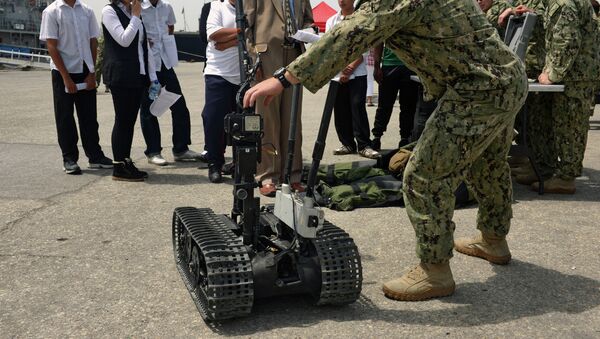"The way people react to and interact with the different surrogates in this study, is crucial to understanding how we can improve our military-training systems," Dr. Peter Squire, a program officer for the Office of Naval Research, has said in a statement.
According to Squire, US Marine Corps training concepts continue to "merge virtual and live components to create the most realistic, effective and affordable training for marines".
Results of the study will be used to determine how robots can be utilised to train infantry and other forces in the US Marine Corps at a state-of-the-art military training facility at Camp Pendleton in California.
On February 4-5 the US Navy will demonstrate new military gear at the Naval Future Force Science and Technology EXPO in Washington. A bipedal humanoid robot designed to assist sailors, a fire-fighting robot and a helicopter drone will be showcased to the public, along with a range of other state-of-the-art technologies.




